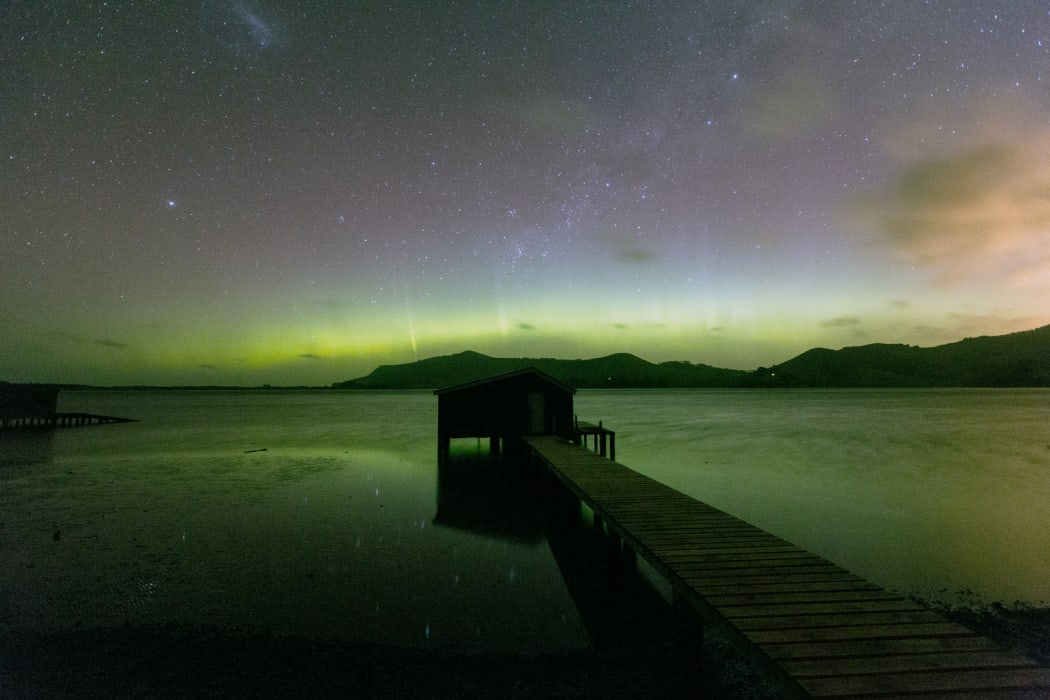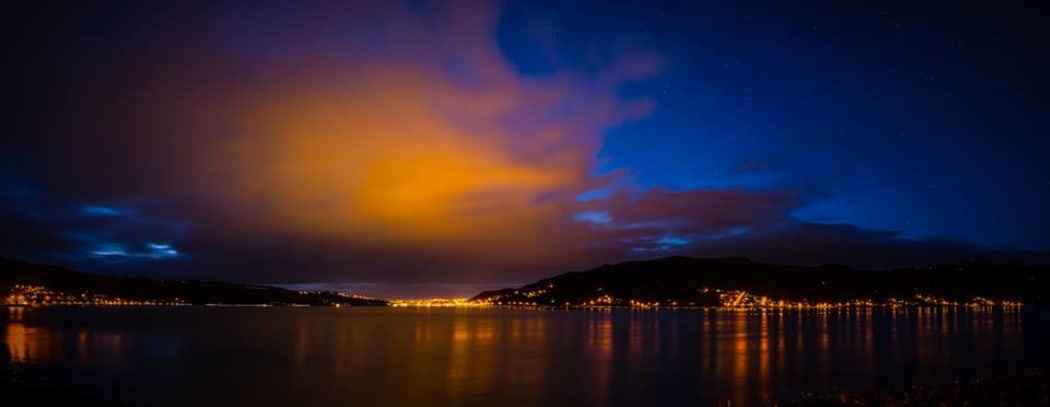
An aurora photographed by Ian Griffin at Hooper's Inlet, on Otago Peninsula. Photo: Ian Griffin
It’s a clear night, and all around the Otago Peninsula aurora enthusiasts gather with cameras to witness a beautiful scientific marvel. Some of the night sky watchers think this could be the start of a new kind of tourism, one that would be enhanced if a new Dark Skies initiative gets underway in Dunedin.
University of Otago science communication student Pam Cornes speaks to a museum director and sky enthusiast, and a biologist, to find out more about the good and bad of ‘light at night.'
As more and more people are discovering, Dunedin is a great place to watch auroras, as its position near to the aurora oval means it’s possible to see auroras quite regularly.
“I’ve become a passionate aurora chaser,” says director of Otago Museum, Dr Ian Griffin. “In the two years that I’ve been here in Dunedin I’ve seen auroras on over 55 nights – once every two weeks. So, you can actually see it quite commonly if you know when and where to look”.
Scientifically speaking, the aurora is caused from material from the sun interacting with the earth’s magnetic field. It is this material that causes our atmosphere to glow. There is no such thing as a standard aurora. Some nights it is nothing more than a gentle pale green glow, whereas other auroras fill the night sky with moving colours that dance “dramatically and dynamically.”
The magnetic field element to auroras has got Dr Griffin so intrigued that he has set up a magnetometer in his back garden. The magnetometer, which measures the changes in the earth’s magnetic field will, in theory, correlate with the auroras we see in the sky.
“I’m confident that in 6-8 months we will have something online, which will be tweeting madly about auroras as they happen live,” says Dr Griffin, who is a keen Twitter user.
The International Astronomical Union has been raising awareness of light pollution in our cities as part of the 2015 International Year of Light, which has been a global initiative to highlight the importance of light technology.
‘Dark Skies’ is one of these initiatives, that Dunedin will be one of the first in the world to instigate. ‘Dark Skies’ is about two things: shielding the lights and using different bulbs, and over the next ten years Dunedin city council plans to replace all its street lights, at a cost of $13-14 million.
“We are hoping that the council will put in shielded street lights that are filtered in a way that will enable us to see the night sky and keep our community safe”, says Dr Griffin, who won the 2015 Prime Minister’s Science Media Communicator’s Prize. He says that shielding the city’s lights should cut down on the ‘dome’ of light that currently surrounds the city at night. However, the kind of LED lights being installed may not be the best ones for the job. Kelvin is a measurement of the colour temperature of white light and at the moment, the Dark Sky commission endorse no more than 3000 Kelvin bulbs. However, the Dunedin council have already installed LED lights that score 4100 Kelvin.
Other scientists say the Dark Sky initiative will be good for more than just world class views of the night sky. Neuroendocrinologist Dr Alexander Tups is a senior lecturer in the Physiology Department of Otago University, and he says we should initiate dark skies for our own health reasons.
He explains that biologically speaking all physiological processes are regulated by our circadian rhythm – the ‘very precise clock’ we go by on a daily basis. This clock is adjusted by natural light.
The problem is that if we now have a light source that is very bright at night, says Dr Tups, this might interfere with our circadian rhythm and ‘synchronize our body clock’ differently. Another consequence of this is light suppresses the sleep hormone melatonin, which also plays an important role in our immune systems.
So, is it time for Dunedin to lead the world in having Dark Skies: not just for aurora watchers and night sky enthusiasts, but for our health as well?

Light pollution from towns and cities is a problem for night sky watchers. Here, the lights of Dunedin not only spill across the harbour but shine up onto and reflect off the clouds above. Photo: Paul le Compte

